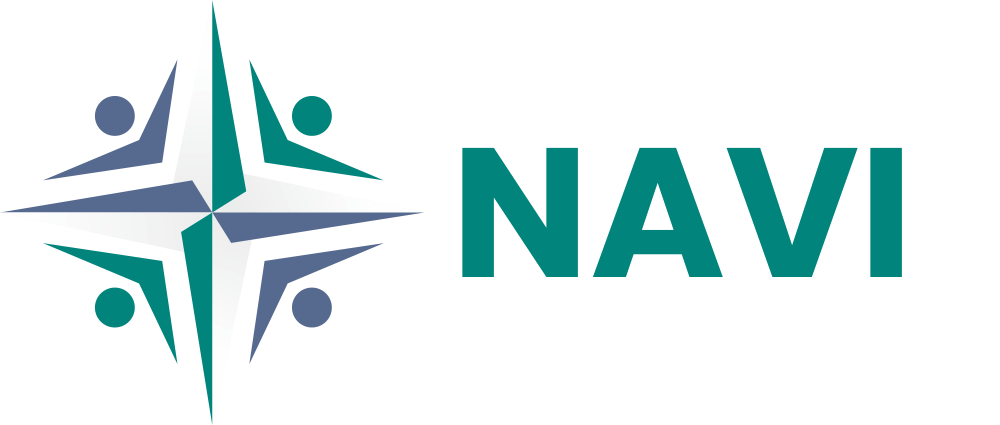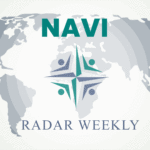Subscribe to NAVI Radar Weekly here
Focus Point: Emerging Technologies & Data- Emerging Technology Standards
RUSI’s Cyberspace Conference Explores Global Cyber Security Challenges | RUSI
By RUSI | 14.10.2024
RUSI’s inaugural Securing Cyberspace conference brought together academia, industry, governments and civil society organisations to share learnings on developing responsible cyber behaviour.
Discussions at the conference focused on three dimensions of cyber responsibility – international, domestic, and operational. Speakers, including the Minister of State for Europe, North America, and Overseas Territories, Stephen Doughty MP, reflected on the imperative of strengthening cross-regional and whole-of-society dialogues to deepen our understanding of what responsibility in cyberspace means in practice.
The conference also celebrated the first-year anniversary of RUSI’s Global Partnership for Responsible Cyber Behaviour – a research-led network comprised of over 70 scholars, working to connect the research community to foster a more inclusive and diverse dialogue on the topic. Read more…
Focus Point: Regional Security- Western Balkans
EU Chief Urges West Balkans To Stay On ‘Right Side of History |Barron’s
By AFP – Agence France Presse| 14.10.2024
European Commission President Ursula von der Leyen on Monday warned against rising Russian influence in the West Balkans, speaking at a summit of the six nations that hope one day to join the European Union.
Speaking at a Berlin summit focused on fostering closer ties within the region and preparing it for eventual EU accession, von der Leyen admitted that there had been a long period in which “enlargement… was excluded as a possibility” for the bloc.
Von der Leyen said that “all countries applying for EU membership have been very clear” in moving “to the side of democracy and the defence of international law”.
However, last month the EU warned Serbia that keeping its historically strong ties with Moscow was “not compatible” with its aspiration to join the bloc, after a top government official met with Russian President Vladimir Putin.
Serbia is almost entirely dependent on Moscow for gas supplies and has not adopted any sanctions since February 2022, although it has condemned the Russian invasion of Ukraine.
Milorad Dodik, the president of Bosnia’s Republika Srpska (RS), is also seen as a Kremlin ally. Read more…
Focus Point: Regional Security- Middle East
U.S. sending powerful defense system to Israel, deepening its involvement in the conflict | NBC News
By Courtney Kube, Freddie Clayton, and Erin McLaughlin | 14.10.2024
The United States announced it is sending an advanced anti-missile system and a number of troops to Israel, deepening America’s involvement in the spiraling conflict as the region readies for Israeli retaliatory strikes against Iran.
The Terminal High Altitude Area Defense, known as THAAD, usually requires about 100 troops to operate, and has six truck mounted launchers, with eight interceptors on each launcher, as well as a powerful radar. It is capable of intercepting ballistic missiles at ranges of 100 to 125 miles.
“This risky strategy risks an all-out wider regional war,” Fawaz Gerges
Fawaz Gerges, a professor of international relations at the London School of Economics, told NBC News that President Joe Biden was sending a message to Iran that the U.S. will do “whatever it takes to protect Israel,” but warned the move risked escalating regional conflict.
“This risky strategy risks an all-out wider regional war,” he said. “This is the exact opposite of what the Biden administration has been trying to do.” Read more…
Focus Point: Regional Security- Transatlantic Security
Europeanizing NATO: De-risking but not de-coupling | NAVI Research Institute
By NAVI Research Institute| 14.10.2024
In the October 2024 NAVI Speaker Series, Michael Benhamou, Executive Director of Europe’s War Institute, presented an insightful discussion on the future of NATO and the critical need for Europe to assume a larger leadership role with NAVI’s Dr. Mustafa Kirisci – NAVI Research Fellow and Mr Umit Kurt – NAVI Vice President.
They discussed the pressing need for Europe to take on a more significant leadership role within NATO. Mr. Benhamou’s bold proposal for a ‘Europeanized NATO’ addresses a pivotal shift in global defense dynamics, especially as the U.S. faces increasing demands on its resources.
Regarding the Europeanization project or proposal for NATO, which aims to make the EU a less dependent, more capable, and more equal ally to the United States, offers a transatlantic defense de-risking effort but not de-coupling. It sounds familiar to the European Union’s China strategy.
It would appear that the Europeanisation of the NATO project has been a well-planned and structured 25-year endeavor. However, it may still be questioned whether Europe had the time, political will and public support to realise the project before it was needed. Read more…
Focus Point: Regional Security- Transatlantic Security/NATO
NATO Defence Ministers Meeting opens with a focus on Ukraine and the Indo-Pacific | NATO
By NATO | 17.10.2024
NATO Defence Ministers agreed on Thursday (October 17) to boost cooperation with their Indo-Pacific partners and to step up support for Ukraine.
In the first session of the two-day meeting, Defence Ministers met in an expanded format that for the first time included partners Australia, Japan, New Zealand and South Korea, as well as the European Union.
Secretary General Mark Rutte said this was “a clear sign of our deepening cooperation in the face of shared challenges.”
Ministers discussed joint efforts to boost cyber defences, defence production and innovation; counter disinformation; and harness new technologies, including artificial intelligence. They also consulted on how they’re working together to support Ukraine. Read more…
Focus Point: Regional Security- Transatlantic Security/NATO
NATO launches five new multinational cooperation initiatives that enhance deterrence and defence |NATO
By NATO | 17.10.2024
On Thursday (17 October 2024), NATO launched five initiatives designed to address some of the most critical areas for Allied deterrence and defense. These new multinational High Visibility Projects will involve a total of 26 Allies and will help deliver critical capabilities that will enhance interoperability among NATO forces
Contributing Allies took part in a signing ceremony during a meeting of NATO Defence Ministers at NATO Headquarters. NATO’s Acting Deputy Secretary General Boris Ruge welcomed “the beginning of more meaningful work in new areas, but also important milestones for existing projects,” adding that “it’s a great example of how our Alliance delivers”.
The first project aims to accelerate the delivery of new generation Remotely Piloted Aircraft Systems (RPAS) – such as NATO’s Alliance Ground Surveillance (AGS) – through multinational cooperation.
The second initiative seeks to increase the interchangeability and interoperability of key Allied artillery munitions.
The Distributed Synthetic Training Environment project aims to respond to the ever-growing demand for virtual training at the multinational level. It establishes a network of advanced and immersive multinational training opportunities for militaries.
NATO is further stepping up its efforts to support Allied delivery of space technologies with two new projects. Through NORTHLINK, 13 Allies will explore the development of a secure, resilient and reliable multinational Arctic satellite communications capability.
Through the STARLIFT initiative, 14 nations will investigate ways to strengthen NATO’s access to and use of space to deal with a range of challenges coming from operating from space.
Further steps were also taken to advance work on two projects already underway: the Next Generation Rotorcraft Capability (NGRC) and NATO’s cross-border airspace cooperation. Launched in 2020 and managed by the NATO Support and Procurement Agency (NSPA), the NGRC initiative aims to replace medium multi-role capabilities ending their life cycle in 2035 and beyond. On Thursday, five of the participating Allies – France, Germany, Italy, the Netherlands, and the United Kingdom – committed to identify a single preferred solution for the replacement of these capabilities by the end of 2027, thereby enabling the development of this solution in 2030. Read more…
Focus Point: Regional Security- Middle East
October 17, 2024 Hamas leader Yahya Sinwar killed in Gaza, Israel says | CNN
By Lex Harvey, Alex Stambaugh, Antoinette Radford, Maureen Chowdhury, Aditi Sangal, Elise Hammond and Kathleen Magramo |17.10. 2024
Hamas leader Yahya Sinwar, believed by Israel to be chief architect of the militant group’s deadly October 7, 2023, terror attack that set off the war in Gaza, was killed by Israeli forces, officials said.
Prime Minister Benjamin Netanyahu said Sinwar’s death marked “the beginning of the day after Hamas.” He vowed that Israel would continue fighting Hamas in Gaza until all hostages are returned home.
In a call discussing Sinwar’s death, Netanyahu and US President Joe Biden agreed there was an opportunity to advance the release of the hostages in Gaza. US officials said they would redouble their efforts with mediators to push for a ceasefire deal.
Despite optimism that Sinwar’s death could bring a Gaza deal closer to fruition, two sources told CNN that Israel’s approach to Iran and its proxies in other countries are seen as “distinct” operations. Israel’s pending retaliation against Iran could come within days, one source said. Read more…
Focus Point: Regional Security- Transatlantic Security/NATO
NATO Secretary General: Strengthening deterrence “top priority” | NATO
By NATO| 18.10.2024
NATO Defence Ministers wrapped up two days of talks on Friday (18 October) with a commitment to further support Ukraine, strengthen ties with partners in the Asia-Pacific and reinforce the Alliance’s deterrence and defence.
“Strengthening our deterrence and defence is this Alliance’s top priority, because keeping our one billion people safe is NATO’s most sacred duty,” NATO Secretary General Mark Rutte
The Secretary General cited greater defence industrial capacity, more secure supply chains, and new technologies as critical to ensuring the Alliance’s security. Mr. Rutte added that NATO was making a fresh push for common munitions standards and more joint procurement to drive down costs and improve ease of use among Allies. NATO operations in the Western Balkans and Iraq were also on the agenda. Read more…
Focus Point: Security and Defense Policy- Russia-Ukraine War
Russia Destroys Strategic Bridge, Feared Ukrainian Counterattack: Report | Newsweek
By Mandy Taheri |19.10.2024
Russia’s military destroyed a bridge on Saturday in Ukraine’s southern Kherson region in an effort to prevent a potential Ukrainian offensive, according to reports by a Ukrainian partisan movement in the region.
The Kyiv-aligned Atesh resistance movement (atesh means “fire” in Crimean Tartar) has been operating in the Kherson region since Russia’s February 2022 invasion. It gathers and reports information on local Russian military operations for Ukrainian intelligence.
The Kherson province, just north of the Crimea peninsula that Russia annexed in early 2014, is on the front lines of the war. Many global leaders, including Turkish President Recep Tayyip Erdoğan, who has been called a “dear friend” by Russian President Vladimir Putin, have demanded “the return of Crimea to Ukraine.”
But unlike in 2022
The United States and many Western allies said the Crimea annexation was illegal, and Washington and much of Europe placed sanctions on Russia. But unlike in 2022, Western countries did not provide Ukraine with military aid to fight back in 2014. Read more…
Focus Point: Regional Security- Middle East
Israel to take legal action against Macron over naval trade show ban | Reuters
By Reuters| 20.10.2024
Israeli Foreign Minister Israel Katz said on Sunday he had ordered his ministry to start legal proceedings against French President Emmanuel Macron after Paris banned Israeli firms from participating in an upcoming military naval trade show.
The decision to bar Israeli firms is the latest incident in a row fuelled by the Macron government’s unease over Israel’s conduct in the wars in Gaza and Lebanon.
Euronaval, organiser of the Nov. 4-7 event in Paris, said in a statement last week that the French government had informed it that Israeli delegations were not allowed to exhibit stands or show equipment, but could attend the trade show. The decision affected seven firms, it said. Read more…
Thank you very much for reading.
The NAVI Research Institute is the research division of NATO Veterans Initiative - NAVI that provides a unique perspective to transatlantic leaders and societies on peace and security through the lens of NATO's founding principles of rule of law, democracy, human rights, and individual liberties. The NAVI Research Institute was officially established by the NAVI Board on July 16th, 2023.

![NAVI-PROJE-[Recovered] Radar Weekly](https://nato-veterans.org/wp-content/uploads/2024/05/NAVI-PROJE-Recovered-696x392.gif)

